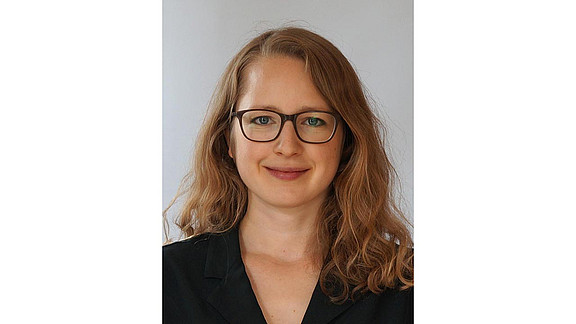Marlene Batzke (Dr.)
Alumni

Research interessts
| Being a social and environmental psychologist, I am particularly interested in how people deal with internal and external conflict situations. How do people handle attitude-behavior discrepancies, contradictions and ambivalences? How do they behave in dilemma situations? I focus on the processes of norm and value development and their change - within individuals as well as with regard to social change in societies. How do the changing environmental demands and the personal response to them influence the individual’s self-image? These processes are of particular relevance with regard to the challenges of the environmental and climate crisis and the associated socio-ecological transformation. |
Academic background
since 2024 Postdoc researcher at the Center for Environmental Systems Research, University of Kassel, Germany 2019 - 2023 PhD student at the Center for Environmental Systems Research, University of Kassel, Germany 2018 M.Sc. in Psychology, University of Marburg, Germany 2017 B.Sc. in Psychology, University of Marburg, Germany 2016 Study abroad at Pennsylvania State University, USA 2015-2019 Scholar of the German Academic Scholarship Foundation |
Publications
2024
| Batzke, M. C. L., & Ernst, A. (2024). Distinguishing fast change in social norms and slow change in personal norms in cooperative decision-making. Frontiers in Psychology, 15, TBD. https://doi.org/10.3389/fpsyg.2024.1380341 |
| Dannenberg, A., Gutsche, G., Batzke, M. C. L., Christens, S., Engler, D., Mankat, F., Möller, S., Weingärtner, E., Ernst, A., Lumkowsky, M., von Wangenheim, G., Hornung, G., & Ziegler, A. (2024). The Effects of Norms on Environmental Behavior. Review of Environmental Economics and Policy, 18(1), TBD. https://doi.org/https://doi.org/10.1086/727588 |
| Mundt, D., Batzke, M. C. L., Bläsing, T., Gomera Deaño, S., & Helfers, A. (2024). Effectiveness and context dependency of social norm interventions: five field experiments on nudging pro-environmental and pro-social behavior. Frontiers in Psychology, 15, 1392296. https://doi.org/10.3389/fpsyg.2024.1392296 |
2023
| Batzke, M. C. L. (2023). Dynamics of Norms in Decision - Making A Psychological Analysis Combining Theory, Experiment, and Social Simulation. https://doi.org/10.17170/kobra-202401299448 |
| Batzke, M. C. L., & Ernst, A. (2023). Conditions and Effects of Norm Internalization. Journal of Artificial Societies and Social Simulation, 26(1), 1–31. https://doi.org/10.18564/jasss.5003 |
2022
| Dannenberg, A., Gutsche, G., Batzke, M. C. L., Christens, S., Engler, D., Mankat, F., Möller, S., Weingärtner, E., Ernst, A., Lumkowsky, M., von Wangenheim, G., Hornung, G., & Ziegler, A. (2022). The Effects of Norms on Environmental Behavior. MAGKS - Joint Discussion Paper Series in Economics, 19. Abgerufen von https://EconPapers.repec.org/RePEc:mar:magkse:202219 |
| Batzke, M. C. L., & Ernst, A. (2022). Explaining and Resolving Norm-Behavior Inconsistencies—A Theoretical Agent-Based Model. In M. Czupryna & B. Kamiński (Hrsg.), Advances in Social Simulation (S. 41–52). Cham: Springer International Publishing. https://doi.org/10.1007/978-3-030-92843-8_4 |
2020
| Batzke, M., & Cohrs, C. (2020). „Ja, aber...“ – Förderung klimafreundlichen Verhaltens durch die Veränderung individueller Rechtfertigungsstrategien. Kurzbericht [“Yes, but...“ – Promoting environmentally friendly behavior by altering individual account strategies. Short report.]. Umweltpsychologie, 24(1), 131–141. |
